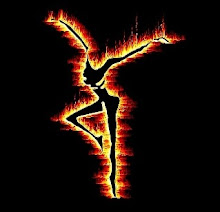"How does the never to be differ from what never was?"
— Cormac McCarthy (The Road)
— Cormac McCarthy (The Road)
This is a must read post-apocalyptic drama that never describes the actual Apocalypse. The reader never learns how the world became the gray ashen lands as it now exists. The human eating "bad guys" are seen, but very vaguely described. As father and son trudge through the beyond bleak lands heading south, the reader is not inundated with tales of the past or thought of the future. The reader thinks and feels exactly as the father and son: of the hear and now. After finishing the book and being left with almost no answers to the who, what, when, where, why and how, one would assume a reader would be left hungry. The only thing I am left hungry for is more. The most powerful thing about McCarthy's writing in The Road is the images his writing conjures. At one point, the father and son stumble upon an abandoned house and pry open a locked door to a cellar. As they walk down the stairs, they see a man laying, eaten from the waste down but still alive, laying on a mattress. The cellar is full of naked humans trying to hide against the walls. They hear the "bad guys" coming across the lawn and the father and son are forced to flee. Hiding in the woods, they hear the humans being killed and eaten. This scene will haunt me for the rest of my life. It was one of the most visual scenes I have ever come across in written language. Grotesque, and strangely beautiful.
The one question I am left with is what biblical, if any, symbolism did this book contain? This is all personal, but there is certain language in the book that is typically Jewish (tokus) and I wonder if the boy is to represent the coming of the next Messiah. The ONLY light imagery within the novel surrounds the young boy. I won't talk about the very end, but it basically solidifies the religious tones within the story, but does not answer any specific questions. The boy carries the fire. What, pray you, is the fire?
Please, Mr. McCarthy, write a sequel.



No comments:
Post a Comment